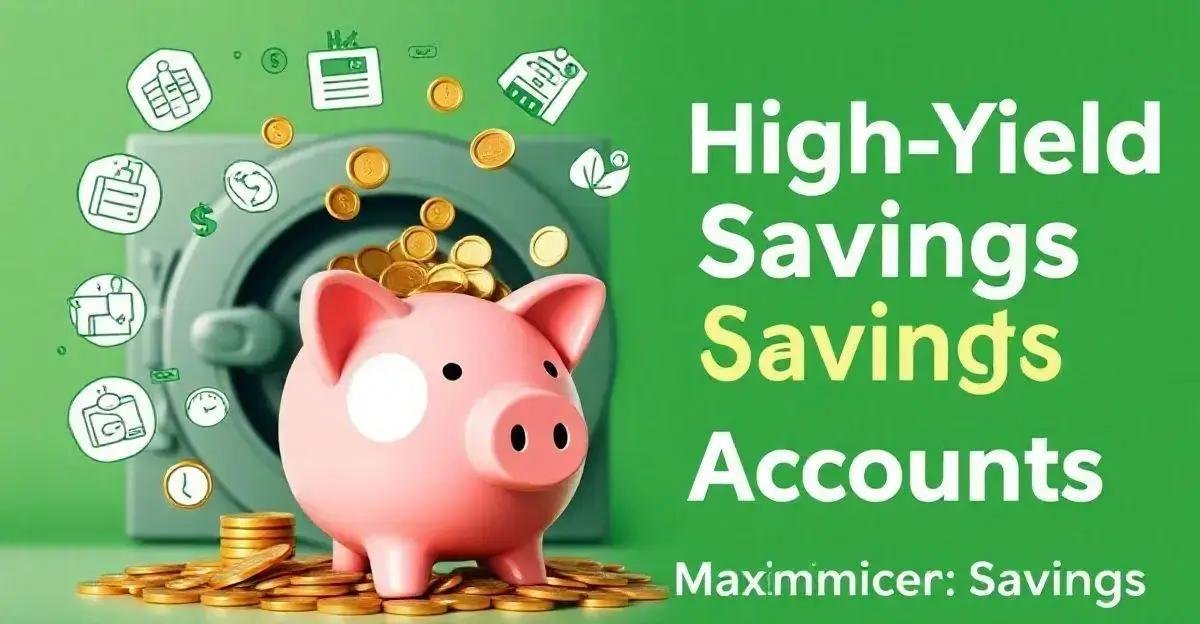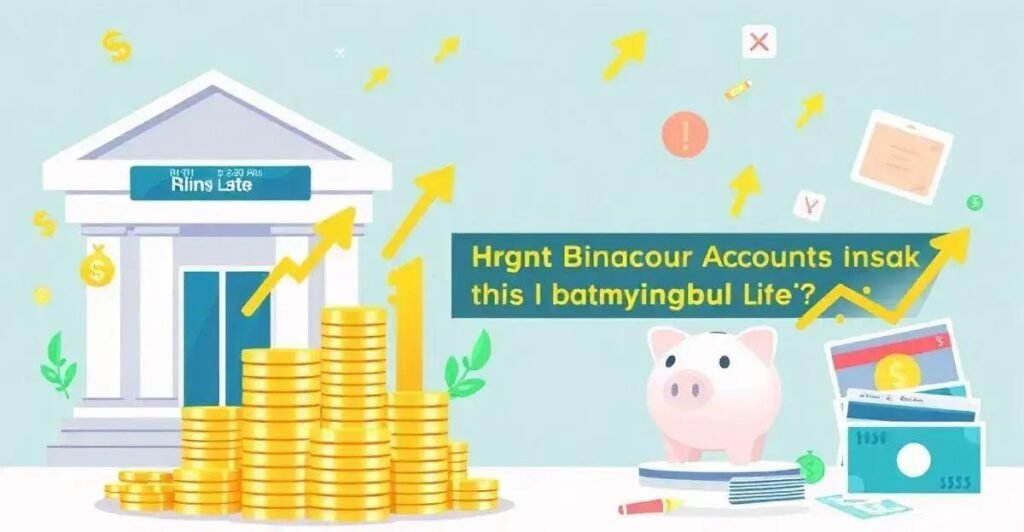In today’s economy, it’s more important than ever to save your hard-earned money wisely.
With inflation on the rise and interest rates fluctuating, finding a reliable way to grow your savings is crucial.
One option to consider is high-yield savings accounts, which offer higher interest rates and better rewards than traditional savings accounts.
In this article, we’ll explore the world of high-yield savings accounts, including their benefits, types, and how to choose the right one for your needs.
High-Yield Savings Accounts: What You Need to Know
A high-yield savings account is a type of savings account that earns a higher interest rate compared to a traditional savings account.
These accounts are designed to help you grow your savings over time, and are often offered by online banks and credit unions.
With a high-yield savings account, you can earn higher interest rates, often with no fees or minimum balance requirements.
This makes it an attractive option for those looking to save money and earn a higher return on their savings.
The Benefits of High-Yield Savings Accounts

High-yield savings accounts offer numerous benefits to savers, including higher interest rates, better liquidity, and increased earning potential. For example, a high-yield savings account can provide a higher return on investment compared to a traditional savings account, allowing you to grow your savings more efficiently.
Additionally, high-yield savings accounts often come with features such as online banking, mobile deposit, and 24/7 customer support, making it easier to manage your finances on-the-go.
By choosing a high-yield savings account, you can take control of your financial future and achieve your long-term savings goals.
Types of High-Yield Savings Accounts
There are several types of high-yield savings accounts available, each with its own unique features and benefits. Some common types include traditional high-yield savings accounts, high-yield checking accounts, and high-yield money market accounts.
Traditional high-yield savings accounts typically offer higher interest rates and better liquidity, while high-yield checking accounts often come with debit cards and checks. High-yield money market accounts, on the other hand, may offer higher interest rates and the ability to make limited withdrawals.
When choosing a high-yield savings account, it’s essential to consider your financial goals and needs to select the type that best suits your situation.
Choosing the Right High-Yield Savings Account

When choosing the right high-yield savings account, it’s essential to consider several factors, including the interest rate, fees, minimum balance requirements, and customer service. You should also research the account’s reputation, read reviews, and check the bank’s rating with the Better Business Bureau.
Additionally, consider the account’s accessibility, such as mobile deposit and online banking, and the account’s flexibility, such as the ability to make withdrawals and transfers. By taking the time to research and compare high-yield savings accounts, you can find the one that best meets your financial needs and goals.
Opening and Funding Your High-Yield Savings Account
Opening a high-yield savings account is a straightforward process that can typically be done online or in-person at a bank branch.
To open an account, you will need to provide basic personal and financial information, such as your name, address, and social security number.
You may also need to provide proof of identity and residency.
Once you have opened your account, you can fund it by transferring money from another account or by making an initial deposit.
Some high-yield savings accounts may have minimum balance requirements or fees for certain transactions, so be sure to review the account’s terms and conditions before opening it.
Managing Your High-Yield Savings Account

Managing a high-yield savings account is crucial to maximizing your earnings and achieving your financial goals.
To manage your account effectively, you should regularly review your balance and transactions to ensure that everything is accurate and up-to-date.
You should also set up automatic transfers to make it easier to save money and avoid overspending.
Additionally, consider taking advantage of mobile banking apps and online banking platforms to monitor your account and conduct transactions on-the-go.
By staying on top of your account and making smart financial decisions, you can ensure that your high-yield savings account continues to work for you and help you achieve your financial goals.
High-Yield Savings Account FAQs
What is a high-yield savings account?
A high-yield savings account is a type of savings account that earns a higher interest rate compared to a traditional savings account.
How do I choose the right high-yield savings account?
To choose the right high-yield savings account, consider factors such as interest rate, fees, minimum balance requirements, and customer service.
How do I open and fund a high-yield savings account?
To open a high-yield savings account, you will need to provide basic personal and financial information and fund the account with an initial deposit or transfer money from another account.
How do I manage my high-yield savings account?
To manage your high-yield savings account effectively, regularly review your balance and transactions, set up automatic transfers, and take advantage of mobile banking apps and online banking platforms.
What are the benefits of high-yield savings accounts?
High-yield savings accounts offer higher interest rates, better liquidity, and increased earning potential, making them a great option for those looking to grow their savings.
Are high-yield savings accounts safe?
High-yield savings accounts are insured by the Federal Deposit Insurance Corporation (FDIC) or the National Credit Union Administration (NCUA), making them a safe and secure option for your savings.



